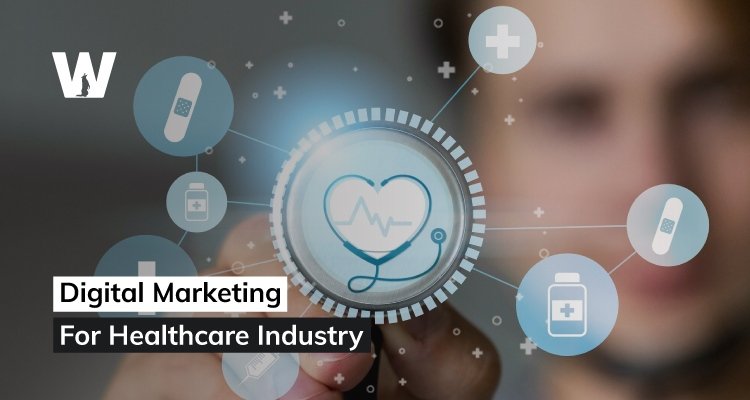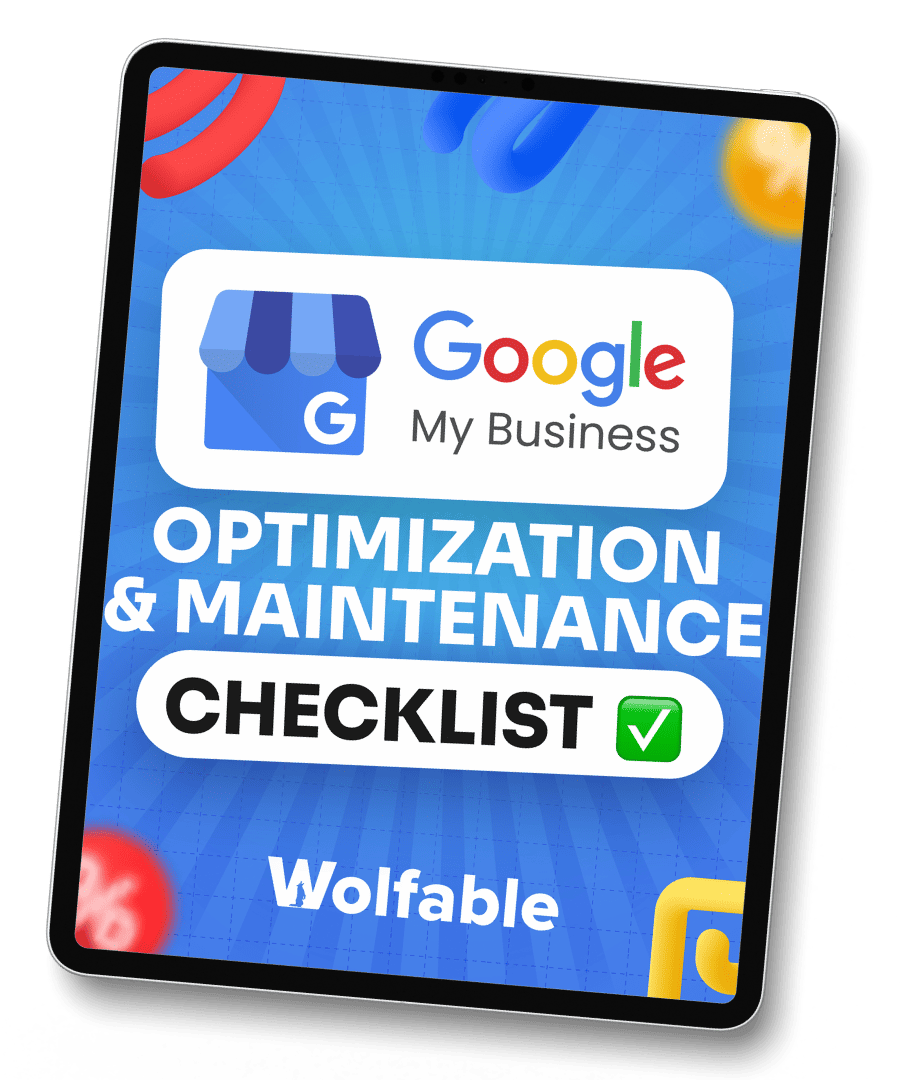Wraps up in 9 Minutes
Introduction
Nowadays, connecting with your patients has never been more important – or more complex.
Whether you're running a small clinic, managing a large hospital, or operating a specialized healthcare facility, having a strong digital presence isn't just an option anymore – it's essential for growth and patient engagement.
Think about it — when was the last time you saw someone flip through the Yellow Pages to find a doctor?
Today's patients are turning to Google searches, social media recommendations, and online reviews to make important healthcare decisions. They're researching symptoms online, comparing healthcare providers, and seeking authentic connections with medical professionals before they ever step foot in a clinic.
But healthcare digital marketing isn't just about having a website or posting on social media.
It's about creating a comprehensive digital strategy that respects patient privacy, complies with healthcare regulations, and effectively communicates your expertise and services to those who need them most.
In this comprehensive guide, you'll discover everything you need to know about digital marketing specifically tailored for the healthcare industry.
What Is Healthcare Digital Marketing?
Digital marketing in healthcare is your gateway to connecting with patients in the online world where they spend most of their time.
As the healthcare industry continues to evolve, having a strong digital marketing strategy for healthcare has become essential for medical practices of all sizes.
At its core, it's the practice of promoting your healthcare services, building patient relationships, and growing your medical practice through various digital channels and technologies.
Whether you manage digital marketing in-house or partner with a healthcare digital marketing agency, it helps you reach people who are actively searching for health-related information, medical services, or healthcare providers.
This includes your website, social media platforms, email campaigns, mobile apps, and telehealth services – all working together to create a cohesive digital presence for your practice.
What makes digital marketing in the medical industry unique is its focus on building trust and credibility while maintaining strict compliance with healthcare regulations. You're not just marketing a product or service; you're helping people make important decisions about their health and well-being.
That's why many healthcare professionals partner with a digital healthcare marketing agency to ensure their strategies align with industry standards and regulations.

Why is Digital Marketing necessary for the Healthcare Industry?
Digital marketing for the healthcare industry isn't just an option – it's a necessity.
With over 80% of patients conducting online research before scheduling medical appointments, your healthcare practice needs a strong digital presence to survive and thrive in an increasingly competitive landscape.
The way patients seek healthcare has fundamentally changed. Instead of relying solely on word-of-mouth referrals or traditional advertising, people now turn to search engines, social media, and online reviews to make healthcare decisions.
This shift in patient behavior makes digital marketing in the medical industry essential for several compelling reasons:
- Enhanced Patient Access and Education: Through effective digital marketing in healthcare, you can provide valuable health information to patients 24/7. Your online presence serves as a reliable resource for patients seeking information about symptoms, treatments, and preventive care. This accessibility not only helps patients make informed decisions but also positions your practice as a trusted authority in your field.
- Improved Patient Engagement: A well-planned healthcare digital marketing strategy enables you to engage with patients across multiple digital channels. Whether through educational blog posts, social media updates, or email newsletters, you can maintain consistent communication with your patient base. This ongoing engagement helps build stronger relationships and increases patient loyalty.
- Competitive Advantage: As more healthcare providers partner with a healthcare digital marketing agency to establish their online presence, staying competitive requires a robust digital strategy. Digital marketing for healthcare providers helps you stand out in a crowded marketplace by showcasing your unique services, expertise, and patient care approach.
- Cost-Effective Patient Acquisition: Compared to traditional marketing methods, digital advertising in healthcare often provides a better return on investment. Through targeted campaigns and precise audience segmentation, you can reach potential patients who are actively searching for your services, making your marketing efforts more efficient and effective.
- Building Trust and Credibility: In healthcare, trust is everything. Digital marketing for healthcare professionals allows you to build and maintain your reputation through patient testimonials and reviews, regular updates about your practice and services, and transparent communication about procedures and policies.
- Regulatory Compliance and Privacy: A professional healthcare digital marketing strategy ensures that your digital presence complies with healthcare regulations while effectively marketing your services. This includes maintaining HIPAA compliance while implementing digital marketing initiatives, protecting patient privacy, and ensuring secure communication channels.
You might be interested in : Digital Marketing for the Wellness Industry
The Digital Shift in the Healthcare Industry
The healthcare industry has undergone a remarkable transformation in recent years, driven by technological advancements and changing patient expectations.
This digital revolution has made digital marketing for the healthcare industry more crucial than ever before, fundamentally changing how healthcare providers interact with their patients.
Just a decade ago, patients relied heavily on referrals and local directories to find healthcare providers. Today, the journey typically begins with a Google search, making digital marketing in healthcare essential for practice visibility. Consider these striking statistics:
- 7 out of 10 patients research healthcare providers online before making appointments.
- Over 65% of patients book appointments through digital platforms
- More than 75% of patients use both search engines and healthcare provider websites to gather health information.
The digital transformation in healthcare is not just about adopting new technologies – it's about reimagining the entire patient experience.
If you embrace this digital shift and implement appropriate marketing strategies, healthcare providers can better serve patients while building stronger, more sustainable practices for the future.
How is Healthcare Digital Marketing Different from Standard Digital Marketing?
While the basic principles of digital marketing remain consistent across industries, digital marketing for the healthcare industry comes with its own unique set of challenges, regulations, and responsibilities.
Let's explore what makes digital marketing in healthcare distinctly different from standard digital marketing practices.
| Aspect | Digital Marketing for Healthcare Industry | Standard Digital Marketing |
|---|---|---|
| Regulatory Compliance | Strict HIPAA compliance is mandatory Patient privacy protection essential Verified medical information required Documented advertising claims Consent needed for testimonials |
General data protection rules Standard privacy policies Less stringent fact-checking Flexible advertising claims Open testimonial sharing |
| Ethical Considerations | Patient well-being priority Non-prescriptive medical advice Emergency situation protocols Protection of vulnerable audiences Careful handling of health concerns |
Sales and profit focus Direct promotional advice Standard emergency responses General audience protection Emotional marketing acceptable |
| Content Creation | Medical accuracy required Scientific yet accessible content Regular medical updates needed Professional review required Educational focus |
Creative freedom Flexible content style Update as needed Internal review sufficient Sales focus |
| Trust Building | Verified medical credentials Consistent accurate information Professional tone mandatory Patient safety focus Long-term relationship building |
Brand reputation Marketing messages Flexible tone Product/service focus Transaction focus |
| Target Audience | Health-concerned individuals Emotional sensitivity required Condition-specific approach Cultural sensitivity crucial Accessibility priority |
General consumers Standard sensitivity Product-focused approach General cultural awareness Basic accessibility |
| Service Promotion | No outcome guarantees Conservative approach Careful pricing presentation Emergency service protocols Advertising restrictions |
Performance promises Aggressive marketing Flexible pricing display Standard service promotion Fewer restrictions |
| Platform Usage | HIPAA-compliant systems Professional boundaries Secure messaging required Privacy-focused content Monitored reviews |
Standard platforms Flexible boundaries Regular messaging Public content Open reviews |
| Crisis Management | Immediate health response Misinformation control Critical response timing Emergency protocols Regular crisis updates |
Standard response time Basic fact-checking Flexible timing General protocols As-needed updates |
| Technology | EHR integration Telemedicine compatibility Secure patient portals HIPAA-compliant tools Privacy-focused analytics |
Standard CRM Basic video tools Regular user portals Standard tools General analytics |
| Performance Metrics | Patient satisfaction focus Health outcome tracking Community impact Patient retention priority Care quality metrics |
Sales metrics Conversion tracking Market impact Customer acquisition Revenue metrics |
This comparison helps healthcare providers understand why working with a healthcare digital marketing agency that understands these differences is crucial.
The unique requirements of digital marketing in healthcare mean that strategies successful in standard marketing may need significant adaptation for the healthcare sector.
Whether implementing digital marketing trends for healthcare or developing a comprehensive healthcare digital marketing strategy, understanding these distinctions is essential for success in the medical field.
Key Trends in Healthcare Digital Marketing in Recent Years
Digital marketing for the healthcare industry has undergone significant transformation in recent years, with emerging trends reshaping how healthcare providers connect with their patients.
Let's explore the key trends that are revolutionizing digital marketing in healthcare:

- Enhanced HIPAA Compliance and Data Security: As digital marketing in the medical industry expands, healthcare providers are implementing increasingly sophisticated security measures. This includes end-to-end encryption for patient communications, secure patient portals with multi-factor authentication, and HIPAA-compliant video conferencing systems. Regular security audits and comprehensive staff training have become standard practice, ensuring that all digital marketing initiatives protect patient privacy.
- AI & Chatbots: Modern healthcare providers are leveraging AI-powered solutions as part of their healthcare digital marketing strategy. From intelligent appointment scheduling systems to personalized health recommendations, AI is transforming patient interactions. Smart chatbots now handle initial patient inquiries, while predictive analytics help optimize patient care delivery and marketing efforts.
- Telemedicine Integration: Digital marketing for healthcare providers now heavily emphasizes virtual care capabilities. The integration of virtual consultation platforms, remote patient monitoring, and digital prescription services has transformed healthcare delivery. This shift has made healthcare more accessible while creating new opportunities for patient engagement and service promotion.
- Voice Search Optimization: Digital marketing for healthcare professionals increasingly focuses on voice technology integration. Healthcare websites now incorporate voice-enabled navigation and natural language processing for medical queries, making it easier for patients to access information and book appointments through voice commands. This trend aligns with the growing use of smart speakers and voice assistants in healthcare information seeking.
- Video Marketing: Digital advertising in healthcare has seen a significant shift toward video content. Healthcare providers are creating virtual facility tours, procedure explanation videos, and doctor introduction content to build trust and educate patients. Live health education sessions and behind-the-scenes glimpses of facilities help humanize healthcare services while maintaining HIPAA compliance.
- Personalized Patient Experience : Working with a healthcare digital marketing agency often involves implementing sophisticated personalization strategies. From customized patient portals to individualized care reminders, personalization helps improve patient engagement and outcomes while respecting privacy requirements.
- Mobile-First Approach: Current digital marketing trends for healthcare prioritize mobile optimization. Healthcare providers are focusing on responsive website design, mobile appointment booking capabilities, and integrated health-tracking apps. This shift reflects the growing preference for mobile healthcare access and information consumption.
- Content Marketing: Digital marketing in health industry content has become more diverse and sophisticated. Healthcare providers are creating interactive health assessments, medical infographics, healthcare podcasts, and virtual reality patient education materials. This rich content mix helps engage patients while providing valuable health information.
- Social Media Engagement: The role of social media in healthcare marketing has evolved significantly. A digital healthcare marketing agency typically focuses on meaningful community interaction through regular health tips, live Q&A sessions with healthcare providers, and community health awareness campaigns, all while ensuring HIPAA compliance.
- Local SEO Enhancement: Local search optimization has become crucial for healthcare providers. This includes optimizing Google My Business profiles, managing local health directories, and creating geo-targeted content that connects healthcare providers with their immediate communities.
These trends demonstrate how digital marketing for the healthcare industry continues to evolve while maintaining strict HIPAA compliance and patient privacy standards.
Success in healthcare marketing requires staying current with these trends while ensuring all digital initiatives prioritize patient confidentiality and data security.
You might be interested in : Digital Marketing for Doctors
Strategies for Healthcare Digital Marketing
Nowadays, implementing effective digital marketing for the healthcare industry requires a well-planned, comprehensive approach. These strategies help healthcare providers create a strong online presence while maintaining compliance and patient trust.
Let's explore each crucial component of a successful healthcare digital marketing strategy.
1. Define Your Healthcare Digital Marketing Goals
Establishing clear, measurable objectives is the foundation of successful digital marketing in healthcare.
Your healthcare practice needs specific goals that align with your overall mission and growth objectives. These might include increasing patient appointments, improving retention rates, enhancing brand awareness, or expanding your service reach.
When you set SMART goals (Specific, Measurable, Achievable, Relevant, Time-bound), you create a framework for measuring success and adjusting strategies as needed.
2. Define Your Target Audience
Understanding your audience is crucial for digital marketing in the medical industry.
Today's healthcare consumers have diverse needs, preferences, and behaviors that influence their healthcare decisions. Consider demographic factors like age, location, and income level, along with specific health conditions and concerns.
Insurance coverage, healthcare preferences, and decision-making patterns all play vital roles in shaping your marketing approach.
All in all, creating detailed patient personas helps ensure your messages resonate with the right audience at the right time.
3. Keyword Research related to Patient Queries
Working with a healthcare digital marketing agency often begins with comprehensive keyword research.
This crucial step involves understanding how potential patients search for healthcare services online.
Therefore, you need to focus on common symptoms, conditions, treatments, and location-based healthcare queries. You can also consider insurance-related terms, provider credentials, and emergency care needs.
This research forms the foundation of your content strategy and helps ensure your digital presence aligns with patient search behavior.
4. Build a Responsive and User-Friendly Website (UI/UX)
Your website serves as the digital front door to your practice. In digital marketing for healthcare providers, a well-designed website must balance professional aesthetics with functionality.
First, you’ll need to ensure your site offers intuitive navigation, fast loading times, and easy access to crucial information.
The user interface of your website should accommodate various user needs, from appointment scheduling to accessing medical resources, while maintaining a professional and trustworthy appearance.
5. Mobile Optimization of Website in the Healthcare Industry
With more patients using mobile devices to access healthcare information, mobile optimization has become essential for digital marketing in the health industry.
Your website must perform flawlessly across all devices, offering a seamless experience whether accessed via smartphone, tablet, or desktop.
This includes responsive design, touch-friendly interfaces, and optimized loading times for mobile users.
6. Create a Content Marketing Strategy to Educate your Patient
Content marketing in healthcare requires a delicate balance of educational value and marketing goals.
Your strategy should focus on creating accurate, helpful content that addresses patient concerns and questions. This might include blog posts about common health conditions, videos explaining procedures, or infographics about preventive care.
Ideally, all content should maintain medical accuracy while remaining accessible to your target audience.
7. Optimize Website with Effective SEO Strategies
Search Engine Optimization (SEO) is crucial for digital advertising in healthcare.
Your website needs to appear in search results when potential patients look for healthcare services in your area.
This involves optimizing your website's technical elements, creating quality content, and building authoritative backlinks while following healthcare industry best practices.
8. Conversion Rate Optimization (CRO) for Easy Appointments
The goal of healthcare digital marketing strategy isn't just to attract visitors – it's to convert them into patients.
CRO focuses on making it as easy as possible for potential patients to schedule appointments, contact your office, or access your services. This includes streamlined appointment forms, clear calls-to-action, and efficient patient communication channels.
9.WhatsApp Integration to Engage Patients on Website
Modern digital marketing trends for healthcare include integrating messaging platforms like WhatsApp for patient communication.
This allows for instant, secure communication while maintaining HIPAA compliance. Patients can ask questions, receive appointment reminders, and get basic support through familiar messaging platforms.
10. Creating high-impact healthcare brochures and catalogs
Digital brochures and catalogs remain powerful tools for patient education and service promotion.
These materials should combine compelling visuals with clear, concise information about your services, procedures, and facilities. Modern healthcare brochures go beyond basic service listings – they include interactive elements, QR codes linking to detailed online resources, and patient success stories (while maintaining HIPAA compliance).
When working with a healthcare digital marketing agency, ensure your digital publications are optimized for both online viewing and printing, making them accessible to all patient demographics.
11. Enhance Local SEO to Make it Easy for Patients to Locate Your Centre
Local SEO has become a cornerstone of successful digital marketing in healthcare.
Most patients search for healthcare providers within their immediate geographical area, making local search optimization crucial for practice visibility. This involves optimizing your Google Business Profile with accurate business hours, services, and location information.
Therefore, it is recommended to create location-specific content that addresses local health concerns and community needs. Additionally, you must also Implement structured data markup to help search engines understand your services and location.
Lastly, it is a good practice to develop partnerships with other local healthcare providers and organizations to build local authority and improve your search visibility in your service area.

12. Claim/Register on Local Directories of Healthcare Industry
Expanding your digital footprint through healthcare directories is essential for comprehensive digital marketing in the medical industry.
To get started, we suggest identifying and claiming listings on major healthcare directories, insurance provider directories, and local business listings. Next, you should also ensure your information is consistent across all platforms, including your practice name, address, phone number, and services offered.
In addition, regular monitoring and updating of these listings help maintain accuracy and improve your online visibility. This multi-platform presence not only improves your searchability but also builds credibility with potential patients.
13. Engage Your Audience Through Social Media Channels
Social media has become an integral part of healthcare digital marketing strategy, offering unique opportunities for patient engagement and education.
For best results, you can begin with developing a content calendar that balances promotional content with valuable health information, wellness tips, and community updates.
You can use platform-specific features like Instagram Stories for behind-the-scenes glimpses of your practice, Facebook Live for health education sessions, and LinkedIn for professional networking and thought leadership.
Apart from this, you should consider sharing patient success stories (with proper consent), health tips, and practice updates while maintaining professional boundaries and HIPAA compliance.
14. Video Marketing to Explain Procedures & Relieve Patient Anxieties
Video marketing has become essential for digital marketing for healthcare providers.
You can start by creating diverse video content that addresses common patient concerns and explains complex medical procedures in simple terms. Furthermore, you should develop virtual tour videos of your facility to help new patients feel more comfortable before their first visit.
You can even produce educational content featuring your healthcare providers discussing various health topics and treatment options. While you’re at it, try to include patient testimonials (with proper consent) to build trust and credibility.
Most importantly, you can even create animated videos to explain complex medical concepts in an accessible way. When doing so, always ensure videos are professionally produced, captioned for accessibility, and optimized for various platforms while maintaining medical accuracy and HIPAA compliance.
15. Utilize PPC Advertising for Targeted Healthcare Campaigns (Social Media Advertising and Google Ads)
Digital advertising in healthcare through pay-per-click campaigns requires a strategic approach that combines precise targeting with compliance considerations.
The best way to get started is to create campaigns that target specific patient needs and demographics while respecting healthcare advertising regulations. In addition, you should develop separate campaigns for different services, locations, and patient segments.
When doing PPC advertising, consider using retargeting carefully and ethically to reach potential patients who have shown interest in your services. Implement conversion tracking while maintaining patient privacy.
For best results, we recommend working with specialists who understand both PPC advertising and healthcare regulations to ensure compliant and effective campaigns.
16. Manage Your Online Reputation for Trust
In digital marketing in the health industry, your online reputation can significantly impact patient acquisition and retention.
This is why you must implement a comprehensive reputation management strategy that includes monitoring and responding to patient reviews across all platforms while maintaining HIPAA compliance.
For this, it is important to create a systematic approach to collecting patient feedback through HIPAA-compliant surveys and review requests. In addition, you need to train staff on proper response protocols for both positive and negative reviews, ensuring responses never disclose patient information.
Most importantly, You must develop a crisis management plan for handling potential reputation issues. In addition, you also need to showcase positive patient experiences through testimonials and success stories (with proper consent). Regular monitoring of social media mentions, review sites, and healthcare forums helps identify and address potential concerns before they escalate.
17. Use Email Marketing for Patient Communication and Retention
Email marketing remains a powerful tool in digital marketing for healthcare providers when implemented strategically and compliantly.
To use email marketing effectively, you need to develop segmented email lists based on patient demographics, conditions, and engagement levels.
Once that is done, the next step is to create automated email sequences for various patient touchpoints, from appointment reminders to follow-up care instructions. When doing so, make sure that you include valuable health information, wellness tips, and practice updates in your newsletters.
Another important thing to remember is using secure, HIPAA-compliant email platforms for all patient communications.
Most importantly, you must remember to create mobile-responsive email templates that reflect your practice's branding. You can even consider multilingual email campaigns if serving diverse patient populations.
18. Ensure HIPAA (Health Insurance Portability and Accountability Act) Compliance and Patient Privacy
HIPAA compliance is non-negotiable in healthcare digital marketing strategy.
This is why it’s non-negotiable to implement robust security measures across all digital marketing channels, including secure forms, encrypted communication channels, and protected patient portals.
Additionally, you must also develop clear policies for handling patient information in marketing materials. More importantly, you need to implement secure data collection and storage practices for marketing analytics.
There are various HIPAA-compliant tools and platforms you can use for all patient communications. You just need to ensure there are clear consent forms for using patient testimonials or case studies in marketing materials. Plus, it’s compulsory to maintain detailed records of compliance measures and regularly update procedures as regulations evolve.
19. Continuously Analyze and Optimize Your Marketing Efforts
Success in digital marketing for healthcare providers requires ongoing analysis and optimization.
The best way to do so is to implement comprehensive tracking systems that measure key performance indicators while maintaining patient privacy. In addition, regular analysis of website analytics, conversion rates, and patient acquisition costs helps identify areas for improvement.
We even recommend analyzing patient feedback and survey results to identify service improvements. This helps to create monthly or quarterly reports for tracking progress toward marketing goals.
Advantages of Investing in Healthcare Digital Marketing
Nowadays, investing in digital marketing for the healthcare industry has become essential for practices looking to grow and maintain competitive advantage.
Understanding these advantages helps healthcare providers make informed decisions about their marketing investments and develop effective strategies for reaching and engaging patients.
- Enhanced Patient Engagement and Communication:
Healthcare digital marketing strategy revolutionizes how practices connect with their patients. Through digital channels, healthcare providers can now offer instant responses to patient queries via chatbots, share critical health updates in real time, and maintain consistent communication through personalized email newsletters. This enhanced level of engagement creates stronger patient relationships and improves overall care quality by keeping patients informed and connected with their healthcare providers. - Improved Patient Acquisition and Retention:
Digital marketing for healthcare providers significantly enhances your ability to both attract new patients and retain existing ones. By creating multiple touchpoints throughout the patient journey and building trust through a consistent online presence, practices can effectively showcase their expertise and success stories. This comprehensive approach helps convert potential patients while keeping current patients engaged and satisfied with their care experience. - Cost-Effective Marketing Solutions:
Compared to traditional marketing methods, digital marketing in the medical industry offers a superior return on investment. With the ability to track and measure results precisely, practices can allocate their marketing budget more effectively and adjust strategies based on performance data. This flexibility and scalability make digital marketing particularly attractive for healthcare practices of all sizes, allowing them to compete effectively in their market while maintaining cost efficiency. - Increased Local Visibility:
Working with a healthcare digital marketing agency can dramatically improve your practice's local presence. Through enhanced local SEO strategies and optimized Google Business Profiles, healthcare providers can ensure they appear prominently in local searches. This increased visibility is crucial for attracting patients in your immediate service area and establishing your practice as a trusted local healthcare resource. - Better Patient Education:
Digital marketing in the health industry has transformed patient education opportunities. Healthcare providers can now create and distribute comprehensive educational content through various digital channels, including informative blog posts, educational videos, and interactive health tools. This improved access to reliable health information helps patients make better-informed decisions about their health while positioning your practice as a trusted authority. - Data-Driven Decision Making:
Modern digital marketing trends for healthcare provide unprecedented access to valuable data and insights. Through detailed analytics and performance metrics, healthcare practices can track patient behavior, measure campaign effectiveness, and calculate precise ROI. This wealth of information enables providers to make informed decisions about their marketing strategies, optimize their approaches based on real data, and allocate resources more effectively to areas showing the best results. - Competitive Advantage:
Investing in a comprehensive digital healthcare marketing strategy gives practices a significant edge in today's competitive healthcare market. By effectively showcasing unique specialties, highlighting expertise, and building a strong online reputation, healthcare providers can differentiate themselves from competitors. This digital presence allows practices to demonstrate their value proposition clearly and stay ahead of industry trends, making them more attractive to potential patients. - Improved Patient Experience:
Digital advertising in healthcare contributes to an enhanced overall patient experience. By streamlining processes like appointment scheduling, providing easy access to health information, and offering convenient communication channels, practices can significantly improve patient satisfaction. Digital tools and platforms make healthcare more accessible and convenient for patients, leading to better engagement and improved healthcare outcomes. - Broader Market Reach:
Digital marketing for healthcare providers breaks down geographical barriers and expands a practice's potential patient base. Through targeted digital strategies, healthcare providers can reach specific patient demographics across multiple platforms, build national recognition, and even establish a global presence when appropriate. This expanded reach opens new opportunities for growth and allows practices to serve larger patient populations effectively. - Enhanced Professional Credibility:
In the digital age, a strong online presence is crucial for establishing and maintaining professional credibility. Through thoughtful digital marketing in healthcare, practices can showcase their expertise through thought leadership content, professional online profiles, and expert commentary. Patient testimonials and social proof further strengthen this credibility, building trust with potential patients before they even visit the practice. - Efficient Resource Utilization:
Digital marketing for the healthcare industry streamlines many aspects of practice management through automation and digital tools. From automated appointment reminders to digital patient communication systems, these tools reduce administrative burden and improve staff productivity. This efficiency allows healthcare providers to focus more time and resources on patient care while maintaining effective marketing efforts. - Measurable Results and ROI:
One of the strongest advantages of healthcare digital marketing strategy is the ability to measure and track results precisely. Unlike traditional marketing methods, digital marketing provides clear metrics for patient acquisition costs, campaign performance, engagement rates, and revenue attribution. This transparency allows practices to understand exactly how their marketing investments are performing and make data-backed adjustments as needed. - Adaptability and Flexibility:
Digital marketing in the medical industry offers unparalleled flexibility in responding to market changes and patient needs. Practices can quickly modify campaigns, adjust messaging, and pivot strategies based on real-time data and changing circumstances. This adaptability is particularly valuable during health crises or seasonal changes in healthcare needs, allowing practices to maintain effective communication with patients while adapting to new situations.
These advantages collectively demonstrate why digital marketing has become indispensable in modern healthcare practice management.

Best Digital Marketing Automation Tools for the Healthcare Industry
Automation tools have become essential for implementing effective digital marketing in the healthcare industry. These tools help streamline operations, maintain compliance, and enhance patient engagement while ensuring privacy and security.
Let's explore the most valuable automation tools that can transform your healthcare digital marketing strategy.
1. Email Marketing Automation Tools:
Email communication remains a cornerstone of digital marketing in healthcare, and several platforms have emerged as leaders in this space. Mailchimp offers robust HIPAA compliance options and healthcare-specific templates that make patient communication both secure and effective. Constant Contact provides an intuitive interface with powerful automation features specifically designed for healthcare providers. HubSpot delivers comprehensive marketing automation with seamless CRM integration, while Salesforce Marketing Cloud ensures secure patient communication with advanced segmentation capabilities. Campaign Monitor rounds out the top options with its user-friendly drag-and-drop editors and healthcare-compliant templates.
2. Social Media Management Platforms:
Managing social media presence has become crucial for digital marketing for healthcare providers. Hootsuite leads the pack with its ability to schedule posts and monitor multiple platforms simultaneously. Buffer offers streamlined content scheduling with detailed analytics tracking, while Sprout Social provides comprehensive social listening and engagement tools. Later specializes in visual content planning and scheduling, particularly valuable for healthcare practices sharing educational content. SocialPilot stands out with its HIPAA-compliant social media management features, ensuring your social presence maintains regulatory compliance.
3. CRM Systems for Healthcare
Customer Relationship Management tools specific to digital marketing in the medical industry have revolutionized patient relationship management. Practice Fusion integrates patient records seamlessly with marketing automation features, while Kareo offers specialized healthcare marketing capabilities designed for medical practices. DrChrono provides comprehensive patient engagement tools that enhance the provider-patient relationship. SimplePractice includes robust appointment scheduling and patient communication features, and athenahealth rounds out the top options with its powerful marketing automation capabilities tailored for healthcare providers.
4. Content Management Systems
Creating and managing website content in digital healthcare marketing strategy requires specialized platforms. WordPress, when equipped with HIPAA compliance plugins, offers unmatched flexibility and customization options. Drupal Healthcare Distribution provides enterprise-level security and scalability. Webflow offers healthcare-specific templates that combine design flexibility with compliance features. Adobe Experience Manager delivers sophisticated content management capabilities, while Sitecore Healthcare Accelerator provides advanced personalization options for healthcare providers.
5. SEO and Analytics Tools
Tracking and improving digital marketing trends for healthcare requires sophisticated analytics tools. Google Analytics, when properly configured with HIPAA compliance settings, provides invaluable insights into website performance and user behavior. SEMrush's Healthcare Marketing Toolkit offers specialized features for medical practice marketing, while Ahrefs excels in medical keyword research and competitive analysis. Moz Pro helps healthcare practices optimize their online presence with targeted SEO tools, and BrightLocal specializes in helping medical practices dominate local search results with its comprehensive local SEO features.
6. Patient Communication Platforms
Secure patient engagement platforms have become essential in healthcare digital marketing. RevenueWell leads with its automated patient communication features that maintain HIPAA compliance while improving engagement. Weave offers an integrated communication platform that streamlines patient interactions across multiple channels. Solutionreach provides comprehensive patient relationship management tools that enhance the patient experience. PracticeMojo specializes in automated appointment reminders that reduce no-shows, while DemandForce offers a complete patient engagement automation suite that helps practices maintain consistent communication with their patient base.
7. Online Reputation Management Tools
Managing online reputation is crucial for success in digital marketing for the healthcare industry. RxReputation offers healthcare-specific features that help practices monitor and manage their online presence. BirdEye provides comprehensive patient review management tools that help practices gather and respond to feedback effectively. Podium excels in review generation and management, making it easier for satisfied patients to share their experiences. Reputation.com for Healthcare offers specialized features for medical practices, while Grade.us provides automated review management tools that help practices maintain a positive online presence.
8. Appointment Scheduling Software
Streamlining patient scheduling through automation has become essential in modern healthcare. ZocDoc revolutionizes online appointment booking with its user-friendly interface and integration capabilities. Appointy offers a comprehensive healthcare scheduling system that reduces administrative burden. SimplePractice provides an integrated scheduling platform that connects seamlessly with other practice management tools. Acuity Scheduling offers automated booking features that respect healthcare privacy requirements, while 10to8 provides HIPAA-compliant scheduling solutions that enhance patient convenience.
9. Website Analytics and Optimization
Improving website performance while maintaining compliance requires specialized tools in digital marketing in healthcare. Crazy Egg helps healthcare websites understand user behavior through heat mapping and session recording. Hotjar offers HIPAA-compliant analysis tools that provide valuable insights into patient website interaction. Lucky Orange Healthcare edition provides detailed user behavior analysis while maintaining privacy standards. Optimizely enables medical websites to conduct A/B testing safely, and VWO healthcare optimization helps practices improve their website conversion rates while maintaining compliance.
10. Marketing Compliance Tools
Maintaining HIPAA compliance in digital marketing requires dedicated tools and platforms. Compliancy Group offers comprehensive compliance management solutions specifically designed for healthcare organizations. HIPAA One provides tools for risk assessment and compliance monitoring. SecurityMetrics helps practices maintain secure digital marketing operations. Accountable HQ offers compliance tracking and documentation tools, while ComplyScan provides automated compliance checking for digital marketing activities.
Remember that while automation can significantly improve efficiency in your digital marketing in health industry efforts, the human element remains crucial.
These tools should enhance, not replace, the personal touch that makes healthcare services unique.
How much should you spend on digital marketing?
When it comes to digital marketing for the healthcare industry, determining the right budget requires careful consideration of various factors.
While there's no one-size-fits-all answer, understanding industry benchmarks and your specific needs can help establish an appropriate spending framework.
Typical Budget Considerations
Most successful healthcare practices invest between 6-12% of their gross revenue in digital marketing in healthcare. This percentage typically breaks down as follows:
- For practices with revenue under $5 million: 8-12% investment recommended
- For practices with revenue between $5-10 million: 6-8% investment recommended
- For established practices with revenue over $10 million: 5-7% investment recommended
Budget Allocation Across Channels
When working with a healthcare digital marketing agency, your budget should typically be distributed across:
- Website Development and Maintenance: 25-30%
- Content Creation and SEO: 20-25%
- Paid Advertising (PPC, Social Media): 15-20%
- Social Media Management: 10-15%
- Email Marketing: 10-12%
- Analytics and Tracking: 5-8%
- Reputation Management: 5-7%
How can you control the cost of digital marketing in the Healthcare Industry?
Implementing effective cost-control measures in digital marketing for healthcare providers helps maintain budget efficiency while maximizing results. By following strategic approaches and making smart decisions, you can manage your marketing budget efficiently while maintaining quality results.
Here's how you can control your digital marketing costs:
1. Strategic Planning and Prioritization
Before spending any money on marketing, you need a clear plan. The best way to get started is to develop measurable goals that align with your practice's objectives. In addition, you also need to focus your initial spending on channels that typically bring the highest return on investment, such as your website and local SEO.
Finally, create a schedule for quarterly budget reviews to ensure you're spending wisely, and keep an eye on what your competitors are doing to stay competitive without overspending.
2. Content Optimization
Managing content efficiently is crucial for controlling costs in digital marketing in the medical industry.
Instead of creating new content constantly, look for ways to repurpose existing content across different platforms.
For example, a blog post about diabetes management could become a social media series, an email newsletter, and an infographic. Ideally, you should focus on creating evergreen healthcare content that remains relevant for longer periods, and develop content calendars to prevent wasteful, rushed content creation.
3. Automation Implementation
Using automation tools as part of your healthcare digital marketing strategy can significantly reduce costs over time.
Implement email marketing automation to handle routine patient communications, use scheduling tools for social media posts, and set up chatbots for basic patient inquiries. These tools may require an initial investment but can save considerable time and money in the long run.
4. Performance Monitoring and Optimization
Following digital marketing trends for healthcare isn't enough – you need to monitor how your efforts are performing.
This is why you must track important metrics that directly relate to your goals, regularly analyze your return on investment, and test campaigns on a small scale before making larger investments. Based on this, you can use this data to make informed decisions about where to adjust your spending.
5. Technology and Tool Selection
Last but not least, you must look for platforms that serve multiple purposes to avoid paying for numerous subscriptions.
Many effective tools offer free versions that might meet your needs, especially when you're starting. You can consider annual subscriptions instead of monthly payments for better rates, and regularly review which tools you're actually using to eliminate unnecessary expenses.
Remember that while controlling costs is important, maintaining quality in your healthcare marketing is crucial.
Why Choose Wolfable for Your Healthcare Centre?
Selecting the right partner for your practice's growth is crucial.
At Wolfable, we combine healthcare expertise with cutting-edge digital marketing strategies to deliver exceptional results for medical practices of all sizes.
Our Healthcare Marketing Expertise
With years of specialized experience in digital marketing in healthcare, we understand the unique challenges and opportunities within the medical sector.
Our team stays current with both digital marketing trends for healthcare and industry regulations, ensuring your marketing efforts are both effective and compliant.
What Sets Us Apart:
1. Healthcare Industry Specialization
a. Dedicated healthcare marketing specialists
b. Deep understanding of medical practice operations
c. HIPAA compliance expertise
d. Industry-specific content creators
e. Healthcare regulation knowledge
2. Comprehensive Digital Solutions
a. Custom website development for medical practices
b. HIPAA-compliant patient engagement strategies
c. Healthcare-specific SEO optimization
d. Medical content creation and management
e. Targeted social media campaigns for healthcare
f. Patient-focused email marketing
3. Data-Driven Approach
a. Regular performance analytics reporting
b. Patient journey tracking
c. Conversion rate optimization
d. ROI monitoring and analysis
e. Competitive market analysis
4. Personalized Service
a. Customized marketing strategies
b. Dedicated account manager
c. Regular strategy meetings
d. Flexible service packages
e. Responsive support team
5. Proven Track Record
a. Documented patient acquisition growth
b. Improved online visibility for practices
c. Enhanced patient engagement metrics
d. Positive ROI for marketing campaigns
e. Strong client testimonials
You might be interested in : Digital Marketing for Physiotherapists
Take the Next Step
Partner with Wolfable to transform your healthcare practice's digital presence.
Our comprehensive understanding of both healthcare and digital marketing ensures your practice receives the expert attention it deserves.
Contact us today to discuss how we can help your practice thrive in the digital age.
Conclusion
Digital marketing for the healthcare industry has become more than just an option – it's a necessity for success.
The digital transformation of healthcare has created new opportunities for practices to connect with patients, streamline operations, and build lasting relationships. From implementing an effective healthcare digital marketing strategy to choosing the right automation tools, every aspect of digital marketing plays a crucial role in your practice's success.
As you implement digital marketing in the medical industry, keep in mind that it's not just about attracting new patients – it's about creating meaningful connections and providing value to your community.
Your digital marketing trends for healthcare should align with your practice's core values and commitment to patient care.
FAQs
The most effective digital marketing in healthcare channels typically include:
- A professional, mobile-responsive website
- Search Engine Optimization (SEO)
- Social media presence
- Email marketing
- Content marketing
- Online reputation management
Each channel plays a unique role in your healthcare digital marketing strategy, and the best mix depends on your specific practice needs and target audience.
When measuring the success of your digital marketing for the healthcare industry, focus on:
- Patient acquisition costs
- Website conversion rates
- Appointment booking rates
- Patient engagement metrics
- Social media engagement
- Email open and click-through rates
- ROI for advertising campaigns
When implementing digital marketing for healthcare providers, timeline expectations should be realistic and based on different phases of growth. In the first 1-3 months, you can expect to see initial improvements in social media engagement, increased website traffic, and better email response rates as your campaigns begin to take shape.
The most significant impact becomes evident in the 6-12 month period, where your healthcare digital marketing strategy begins to show lasting results through established online authority, sustainable patient acquisition, and a strong overall digital presence.
Healthcare Marketing Agency in London, UK
Wolfable is a full-service healthcare marketing agency in London, UK dedicated to helping hospitals, doctors, and wellness clinics grow their presence and attract more patients. We offer comprehensive services, including auditing strategies and marketing for Healthcare Industry. Our expertise spans new patient acquisition programmes, search engine marketing, web development, e-commerce solutions, social media marketing, and YouTube marketing. With a deep understanding of the healthcare sector, our strategies are tailored to meet your specific needs, ensuring compliance and delivering measurable results. Whether you aim to enhance your online reputation or expand your practice, Wolfable is here to help you succeed, connect with us today!









